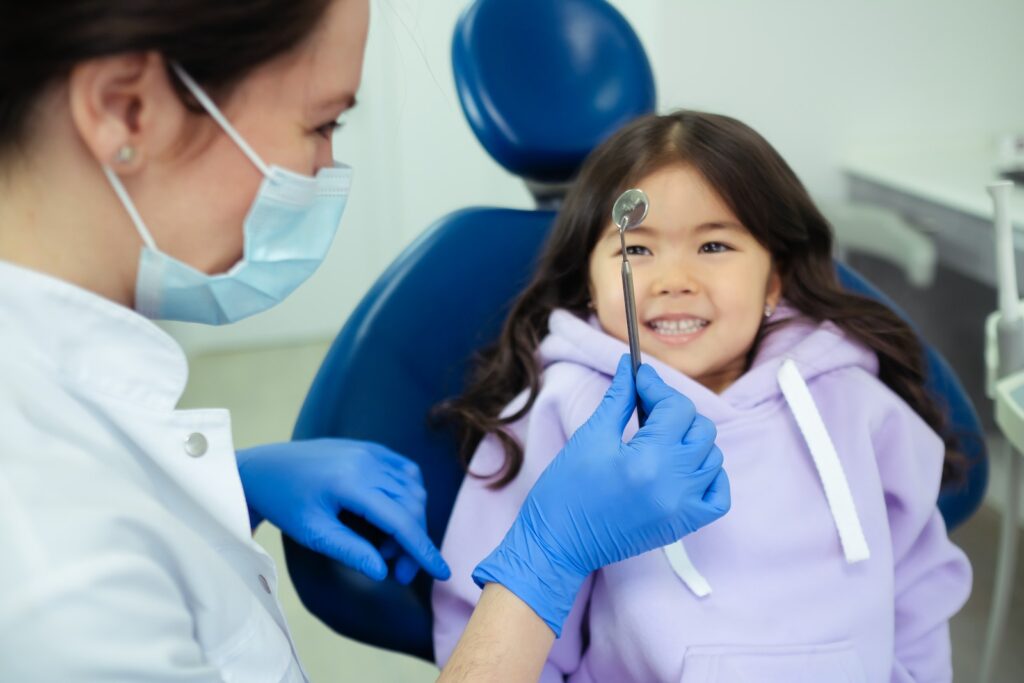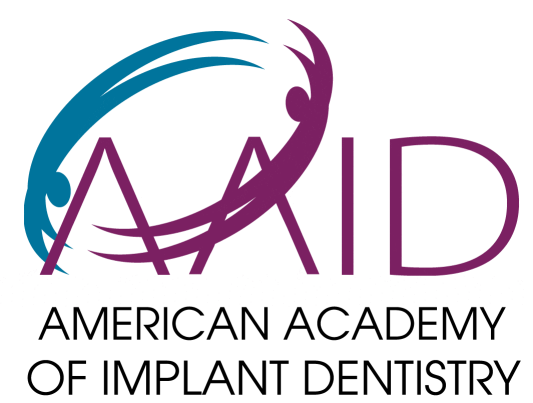What to do if your child is missing a tooth depends on whether it’s a knocked-out permanent tooth (requiring immediate emergency dental care within 30 minutes), a prematurely lost baby tooth (needing space maintenance), or a congenitally missing tooth (requiring long-term treatment planning). At Lansdowne Family Dental, our experienced pediatric dentist with over 15 years of expertise serving families in Lansdowne, Leesburg, Ashburn, Sterling, and greater Loudoun County understands that discovering your child has a missing tooth can be distressing, but with proper understanding and prompt care, we can effectively manage this issue and ensure your child maintains a healthy, beautiful smile.
The appropriate response to a missing tooth varies significantly based on the circumstances and type of tooth involved:
- Emergency situations – Knocked-out permanent teeth require immediate professional attention for potential reimplantation
- Premature baby tooth loss – May need space maintainers to prevent neighboring teeth from shifting
- Congenitally missing teeth – Requires comprehensive treatment planning for future replacement options
- Natural tooth loss – Baby teeth lost at appropriate ages typically need monitoring rather than intervention
A child’s smile is precious, and any disruption to it understandably causes parental concern. However, many missing tooth situations in children can be successfully managed with timely intervention and appropriate treatment strategies tailored to your child’s specific needs and developmental stage.

This comprehensive guide will walk you through the various causes of missing teeth in children, immediate steps to take in different scenarios, treatment options available, and practical advice for prevention and ongoing dental care.
Treatment Options for Missing Teeth For Your Child
At Lansdowne Family Dental, we offer several treatment options for missing teeth in children. The best choice depends on the child’s age, the location of the missing tooth, the cause of tooth loss, and the overall dental health. Here are some options we consider:
- Space Maintainers: These are often used when a baby tooth is lost prematurely. They hold the space open for the permanent tooth to come in properly. Space maintainers can be fixed or removable, and we’ll recommend the best type based on your child’s specific needs.
- Partial Dentures: For older children, removable partial dentures can be a good temporary solution until they’re ready for a more permanent option. These are custom-made to fit your child’s mouth and can be adjusted as they grow.
- Bonding or Crowns: In some cases, we can use bonding techniques or crowns to restore damaged teeth or improve appearance. For instance, if a tooth is chipped but not completely lost, bonding can restore its shape and function.
- Orthodontic Treatment: Sometimes, braces or other orthodontic treatments can help close gaps or create space for future restorations. This is particularly useful in cases where teeth have shifted due to premature loss of baby teeth.
- Dental Implants: While not suitable for growing children, dental implants can be an excellent option once jaw growth is complete, typically in late adolescence or early adulthood. We often recommend this as a long-term solution for congenitally missing teeth.
- Bridge: In some cases, a dental bridge might be appropriate. This involves creating a false tooth that’s held in place by crowns on the adjacent teeth. However, this is more commonly used in adults than in children.
- Monitoring and Waiting: In some cases, especially with young children, the best approach might be to monitor the situation and wait for the right time to intervene. This allows for natural growth and development to occur.
Understanding the Causes of Missing Teeth
Missing teeth in children can occur for various reasons, and identifying the cause is crucial for determining the appropriate course of action. In my years of practice, I’ve observed several common causes:
- Natural Tooth Loss: This is the most common and least concerning cause. Children typically lose their primary (baby) teeth between ages 6 and 12 to make way for permanent teeth. It’s a natural process that shouldn’t cause alarm. However, the timing and sequence of tooth loss can vary from child to child. If you’re concerned about your child’s tooth loss pattern, it’s always best to consult with us for a professional assessment.
- Trauma or Injury: Unfortunately, accidents happen. I’ve treated many children who have lost teeth due to falls, sports injuries, or other accidents. In these cases, quick action is often necessary to preserve the tooth or the space it occupied. If your child experiences a dental injury, contact us immediately. Time is of the essence in these situations, and prompt treatment can make a significant difference in the outcome.
- Congenital Absence (Hypodontia): Some children are born without certain tooth buds, a condition we call hypodontia. It’s more common than you might think, affecting about 2-10% of the population. I remember a young patient, Emma, who was missing her lateral incisors. We worked together to create a treatment plan that ensured her smile remained beautiful and functional. Hypodontia can be hereditary, so if you or your partner have missing teeth, your child might be more likely to have this condition.
- Dental Diseases: Severe cavities or gum disease can lead to premature tooth loss. This underscores the importance of regular dental check-ups and good oral hygiene. Early childhood caries, also known as baby bottle tooth decay, is a particularly aggressive form of decay that can lead to rapid tooth loss in young children. Preventing this condition involves proper feeding practices and early dental care.
- Systemic Health Issues: Certain medical conditions or treatments can affect dental health. For instance, I once treated a child undergoing chemotherapy who experienced dental complications as a side effect of his treatment. Conditions like ectodermal dysplasia can also affect tooth development. If your child has any chronic health conditions, it’s important to inform us so we can provide appropriate dental care.
- Nutritional Deficiencies: While less common in developed countries, severe nutritional deficiencies can affect tooth development and retention. Calcium and vitamin D are particularly important for dental health. Ensuring a balanced diet rich in these nutrients can support your child’s dental development.
The Impact of Missing Teeth
Missing teeth can have both physical and psychological impacts on a child. It’s important to address these issues holistically to ensure your child’s overall well-being.
Physical Impacts:
- Bite Alignment: Missing teeth can cause the remaining teeth to shift, leading to bite misalignment. This can affect chewing efficiency and potentially lead to jaw problems in the future.
- Speech Development: Certain teeth, particularly the front teeth, play a crucial role in speech development. Missing teeth can lead to difficulty pronouncing certain sounds.
- Facial Structure: In the long term, missing teeth can affect facial structure and appearance, as teeth provide support for the cheeks and lips.
- Future Dental Health: Gaps left by missing teeth can create spaces where food particles can accumulate, increasing the risk of decay in neighboring teeth.
Psychological Impacts:
- Self-esteem: Children can be self-conscious about their appearance, and missing teeth can affect their confidence, especially as they grow older.
- Social Interactions: Some children might feel embarrassed to smile or speak in social situations due to missing teeth.
- Bullying: Unfortunately, children with visible dental issues can sometimes become targets for teasing or bullying.
Preventive Measures and Ongoing Care
Prevention is always better than cure. Here are some detailed tips I give to parents to help prevent tooth loss and maintain good oral health:
- Regular Dental Check-ups: Bring your child for regular dental visits. We recommend starting these visits by the first birthday or within six months after the first tooth appears. Regular check-ups allow us to monitor your child’s dental development and catch any issues early.
- Good Oral Hygiene: Teach your child proper brushing and flossing techniques. Make it a fun family activity! Use age-appropriate toothbrushes and fluoride toothpaste. For young children, supervise brushing to ensure they’re doing it correctly and not swallowing toothpaste.
- Protective Gear: If your child plays sports, ensure they wear a mouthguard to protect against dental injuries. Custom-fitted mouthguards provide the best protection and comfort.
- Healthy Diet: Limit sugary snacks and drinks, which can lead to tooth decay. Encourage a diet rich in fruits, vegetables, and dairy products, which provide essential nutrients for dental health.
- Early Intervention: If you notice any dental issues, don’t wait. Early treatment is often more effective and less invasive. This includes addressing habits like thumb-sucking or prolonged pacifier use, which can affect dental development.
- Fluoride Treatment: Consider professional fluoride treatments to strengthen tooth enamel and prevent decay. We can advise on whether this is appropriate for your child based on their individual risk factors.
- Sealants: Dental sealants can be applied to the chewing surfaces of back teeth to prevent decay in these cavity-prone areas.
- Education: Teach your child about the importance of dental health. Understanding why we need to care for our teeth can motivate children to maintain good oral hygiene habits.
Special Considerations for Different Age Groups
Infants and Toddlers (0-3 years):
- Focus on preventing baby bottle tooth decay
- Introduce gentle brushing as soon as the first tooth appears
- Avoid putting your child to bed with a bottle of milk or juice
Preschoolers (3-5 years):
- Encourage independent brushing, but supervise and assist
- Introduce flossing
- Be alert for signs of decay or misalignment
School-Age Children (6-12 years):
- Monitor the loss of baby teeth and the eruption of permanent teeth
- Consider orthodontic evaluation around age 7
- Reinforce good oral hygiene habits as children become more independent
Teenagers (13+ years):
- Address any cosmetic concerns related to missing teeth
- Discuss long-term solutions like implants if appropriate
- Emphasize the connection between oral health and overall health
Conclusion
At Lansdowne Family Dental, we believe in partnering with parents to ensure the best dental health for their children. Missing teeth in children, while concerning, are often manageable with the right approach. Our goal is not just to treat dental issues, but to educate and empower families to maintain optimal oral health.
Remember, every child’s situation is unique. What works for one child may not be the best solution for another. That’s why we pride ourselves on providing personalized care tailored to each child’s specific needs and circumstances.
If you’re worried about your child’s dental development, don’t hesitate to reach out. We’re here to provide personalized care and guidance, ensuring your child maintains a healthy, beautiful smile throughout their growing years. Our friendly staff is always ready to answer your questions and address your concerns.
By working together, we can turn the challenge of missing teeth into an opportunity for better dental health and increased confidence for your child. Let’s give your child a reason to smile brightly!
Remember, a healthy smile is a gateway to overall health and well-being. With proper care, guidance, and timely intervention, we can ensure that your child’s smile remains bright and healthy for years to come. At Lansdowne Family Dental, we’re committed to being your partners in this journey, providing expert care with a gentle touch.






